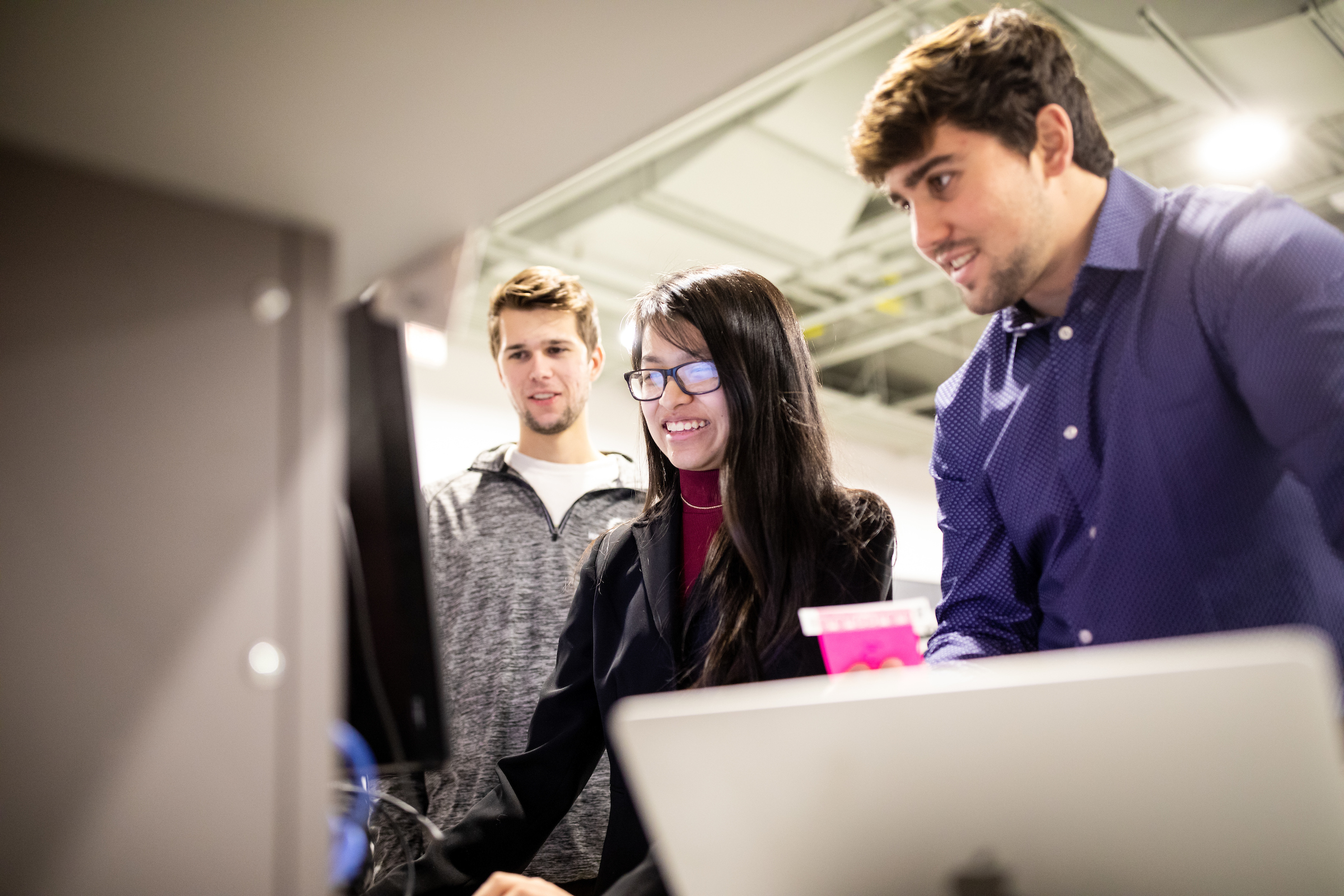Specializations
 Class of 2020 Biomedical Engineering seniors working on their capstone project.
Class of 2020 Biomedical Engineering seniors working on their capstone project.
As a student in the Engineering program, you will choose from one of three specializations. Each specialization builds on earlier system theory, core engineering, and design courses, and is crafted to solve a social justice problem.
When you register for Engineering specialty courses for your sixth semester, you automatically declare your Engineering specialization.
Biomedical Engineering
Computer Engineering
Environmental Engineering
As a student in the Engineering program, you will choose from one of three specializations. Each specialization builds on earlier system theory, core engineering, and design courses, and is crafted to solve a social justice problem.
When you register for Engineering specialty courses for your sixth semester, you automatically declare your Engineering specialization.
Biomedical Engineering
Computer Engineering
Environmental Engineering
